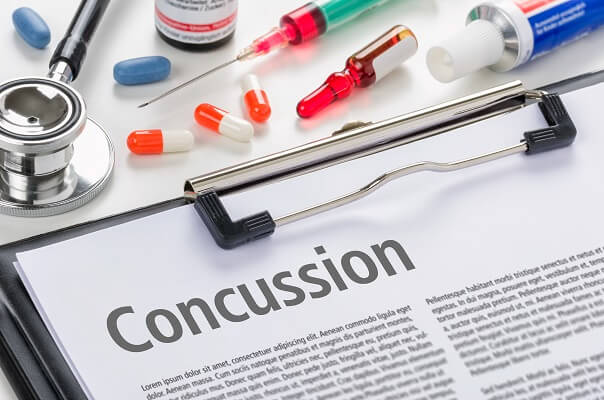
Free Consultation(203) 447-0000

Free Consultation(203) 447-0000

Concussions are widely misunderstood.
You might think you must lose consciousness to have a concussion. Or, you may assume that it requires a severe (if not violent) blow to the head to create a concussion.
However, concussions are a form of a traumatic brain injury (TBI), and they range from mild to severe, depending on the nature of the incident and severity of the trauma. Assuming you could not possibly have a concussion or that a loved one would not have a concussion because they did not lose consciousness could result in long-term complications.
Instead, know the signs and symptoms, be aware of how someone acts after an accident, and know when to seek medical treatment to prevent further issues.
As discussed, a concussion is a type of TBI that affects normal brain function. The effects of a concussion are typically temporary, but those effects still impact your life.
In most cases, concussions fall under the category of mild TBIs or mTBIs. They stem from a blow to the head or a violent shaking of the head, neck, and body. Most importantly, you do not need to lose consciousness to have a concussion. A vast majority of mTBI sufferers never lost consciousness.
Concussions, according to the U.S. Centers for Disease Control and Prevention (CDC), are the most common type of TBI seen.
In 2013, approximately 2.8 million TBI-related emergency room visits, deaths, and hospitalizations occurred, and children are one of the highest risk categories for a TBI concussion.
Most people who have a concussion will recover without complication. However, it is imperative that they exercise brain rest. Without proper rest and recovery, a second incident could result in permanent brain damage.
Think of the brain like a bowl of gelatin. Every day, the brain receives cushioning from bumps and jolts because of the cerebrospinal fluid in the skull that protects it.
If the body or head receives a violent blow or shaking, the brain slides back and forth, slamming against the hard sides of the skull. These injuries affect brain function, and while it is brief, it results in a concussion.
Concussions may lead to bleeding in the brain or around the brain, which can create additional symptoms immediately after the accident or a few days later. Bleeding in the brain is very serious and can be fatal if left untreated.
Concussion symptoms might appear immediately after the accident, while other times they can take a few hours. Likewise, more symptoms may appear as time goes on. And these signs can last a few days, weeks, or longer, depending on the severity of the incident.
The most common symptoms immediately after a concussion are headache, memory complications, and confusion. Sometimes, a person briefly forgets the event that caused their injury.
Children may have different symptoms than a teen or adult. And because children are one of the highest risk groups for these injuries, it is essential that you know the symptoms more common in small children, including:
According to the CDC, most concussion symptoms fall into categories and patterns. Therefore, you might notice the same group of symptoms together. These four categories include:
Some of the symptoms in these categories appear immediately after, while others take a few hours or days.
It is best to go to your doctor or visit the emergency room immediately after head trauma to be safe. But if you cannot go right away, know the warning signs of a more severe injury. The warning signs will vary by adult and child:
A concussion may result in a blood clot, intracranial pressure, and other complications, but this is extremely rare. If a complication does occur, a person’s concussion symptoms will worsen, and they may experience:
Anyone in charge of checking on someone with a concussion should take them to the emergency room immediately if:
The warning signs for children include all of the adult signs above. Plus, if the child will not stop crying, will not nurse or eat, and is inconsolable.
If you or a loved one suffers from head trauma, but none of the warning signs are present, you may be tempted to wait to see your family physician. However, it is still highly encouraged that you seek medical treatment immediately. A CT Scan or MRI may diagnose a TBI faster and catch any potential risks before they turn into more severe complications.
Certain situations can increase the chances that yourself or a loved one suffers a concussion. These may include:
Most concussions do not see complications, but there is always a chance of these rare incidents. And it is essential to be aware of them.
Some complications are minor, while others can be life-threatening:
Those who play high-risk sports should not return to the game until they have been cleared medically. Returning to the game puts a player at risk for cumulative impairments and second impact syndrome. While rare, second impact syndrome can result in rapid and fatal brain swelling.
While you cannot prevent every bump on the head, there are ways to protect yourself and loved ones from the risks of a concussion.
Some things you can do include:
If you or a loved one suffered an mTBI or more severe TBI and you now have long-term complications as a result, you may be entitled to compensation when that accident was caused by negligence.
To explore your options, meet with a personal injury attorney that has experience handling complex cases like brain injuries.
Contact Berkowitz Hanna today to schedule a no-obligation case evaluation. Call or contact us online to get started.
Berkowitz Hanna
